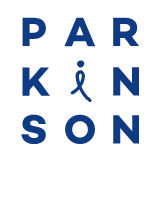- Parkinson’s disease
- Services offered
Free, confidential and bilingual
Opening hoursMonday to Friday : 8:30am – 4:30pm
Saturday and Sunday : closedFor urgent information outside service hours, you can refer to the Info Santé line by calling 8-1-1.
- Research commitment
- Get involved
- Donate
- About us
Home > Parkinsons Disease > Symptoms > Excessive Sleepiness
Excessive Sleepiness
While fatigue and falling asleep during the day are normal for seniors, people living with Parkinson’s disease often experience excessive sleepiness caused by disrupted nighttime sleep.
Daytime hypersomnolence is a condition that involves feeling very sleepy or napping too much during the day.
You may have hypersomnolence if:
- You fall asleep right after breakfast
- You need naps that last over 2 hours
- You fall asleep while reading or watching TV
- You nod off during conversations or meals
- You have the sudden urge to sleep when eating, working, walking or reading (sleep attacks)
Short naps after meals or physical activity are not symptoms of excessive sleepiness.
Hypersomnolence reduces quality of life by decreasing the time available for meaningful activities and contributing to mental confusion.
What causes hypersomnolence?
Insomnia is one of the main causes of hypersomnolence. If you don’t get at least 7 to 8 hours of restful sleep at night, the fatigue accumulates and leads to daytime sleepiness.
The neuronal damage related to Parkinson’s disease is not limited to the parts of the brain that manage movement. The degeneration can also affect areas of the brain responsible for wakefulness.
Nighttime breathing difficulties (obstructive sleep apnea) can cause hypersomnolence, particularly when they disrupt the stages of deep sleep. During these periods, the muscles of the throat relax, obstructing the airway. This results in loud snoring and a shift towards lighter, less restorative sleep.
Antiparkinsonian medications can also cause excessive sleepiness and sudden sleep attacks. These side effects commonly occur when taking dopamine agonists, but other categories of medication (antidepressants, analgesics, cholesterol medication, blood pressure medication, anticoagulants, etc.) can trigger them as well.
It’s important not to confuse excessive sleepiness with the sudden drops in blood pressure that are common in people with Parkinson’s disease, which can cause dizziness and fainting. If you experience these sudden drops, it may be helpful to check your blood pressure at home.
How to mitigate sleep attacks
First of all, do everything you can to sleep well at night. Unfortunately, sleep quality tends to decrease with age and a sedentary lifestyle.
You can try the following strategies to help you stay awake during the day:
- Create a stimulating environment (e.g. TV on, upbeat music, pet, etc.)
- Make sure your space is well lit
- Exercise regularly
- Drink more tea or coffee during the day
- Avoid screens at night
It’s important to learn to recognize when a sleep attack is coming on. Then, you can avoid driving or operating machinery that could endanger yourself and others.
Treatments for excessive sleepiness
Treatment for daytime hypersomnolence starts with an in-depth review of your medications. Your doctor may recommend lowering the dosage of certain medications or stopping them altogether.
Your neurologist may prescribe levodopa tablets you can take at night to alleviate stiffness and tremors.
Your doctor may also prescribe modafinil or atomoxetine, medications that increase attention and alertness.

